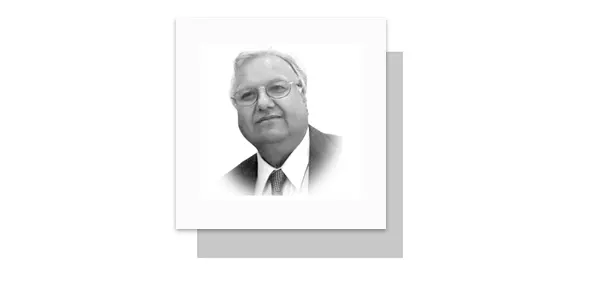IN modern history, there is only one figure who truly understood the psychological state of a weak nation and devised an appropriate strategy for it. This figure was Allama Iqbal. He is often remembered for his verses like “If the believer has faith, he fights like a soldier without a sword,” but his true contribution is frequently overlooked. The militaristic tone of his poetry was meant to uplift Muslims who were demoralized after the disastrous defeat of the War of Independence in 1857 and some other wars. However, the more significant aspect of his thought was steering his people away from armed conflict and towards political struggle. A prominent Western thinker, Wilfred Cantwell Smith, writes in his book ‘Modern Islam in India’ that after 1857, Muslims had become divided into two distinct mindsets. One was the approach of Sir Syed Ahmad Khan which was based on two principles: modern education and establishing friendly relations with the colonial rulers, similar to the Hindus, to avoid further destruction and degradation.
A large section of the Muslim community felt that this strategy would harm their religious values. Therefore, they firmly opposed political compromise and modern education, viewing direct confrontation with the enemy as the only path to salvation, much like during the 1857 uprising and the earlier Mujahideen Movement. Iqbal, however, pointed out that such a course of action would only intensify the devastation and that slavery could not be transformed into freedom by violent means alone. This same thought was behind inviting Muhammad Ali Jinnah back from London to breathe new life into the All-India Muslim League. This strategy proved successful and its success wasn’t just limited to that moment in history. It continued to inspire liberation movements across different parts of the world into the 1970s.
This raises the question: what is the tragedy of our era? There are numerous events in world history that could serve as examples, but the most significant is 9/11. While there are many questions about the nature of this incident, it has now been almost conclusively proven that Al-Qaeda was responsible. The planners believed that they could achieve victory by creating chaos in a few places, but what actually happened? We all know the answer. Whether it was the War of Independence in 1857 or the Mujahideen Movement (although the piety, knowledge and self-sacrifice of its leaders are beyond doubt), both were driven by a mindset similar to that of 9/11. This mindset can be seen as either simplicity, ignorance of the new global realities or a lack of understanding of those realities. There are indications that the recent Hamas attack was of a similar nature.
In such events, it is crucial to understand the mindset of the Muslim public. When news of the 9/11 incident broke, a highly educated and serious journalist stood up in a newspaper office, raised a slogan of “Allah-o-Akbar,” and declared it a clear victory. The same kind of sentiments can be observed when reading about the War of Independence in 1857. Regarding the recent Hamas attack, as soon as news of it broke, it received the same type of coverage in the Muslim world’s media. Even after the massive destruction that followed, whenever a few Jews are killed in any Hamas attack, the Islamic media reports it in such a way that it creates a smokescreen, giving rise to unrealistic hopes. Hamas, Iran, Hezbollah’s remaining leadership and Islamic movements in the Muslim world continue to perpetuate this narrative. This analysis highlights that whether it is the common Muslim or the planners of such conflicts, their mindset remains similar to the untrained, inexperienced and uninformed warriors of the War of Independence in 1857, who built castles in the air based on false assumptions, only for those castles to be swept away by the harsh realities of the modern world.
After such a long, tiring and ruthless assessment, the question arises: what should be done now? To answer this, we need to revisit Iqbal’s era. He pulled the Muslims of the subcontinent out of the grip of Sir Syed’s modernism and Shibli’s orthodoxy, placing them on the path of moderation, knowledge and parliamentary politics. Iqbal used to say that a war in which there is no chance of victory only weakens resolve and destroys resources. Therefore, one should choose a strategy and a battlefield where success is guaranteed. This is why Iqbal, who encouraged his nation’s morale with verses like “The crescent-shaped dagger is our national emblem,” brought Muhammad Ali Jinnah back to India from London. Jinnah not only changed history and geography through his struggle, but he also formed a new nation. Current circumstances suggest that the solution to today’s Muslim problems also lies in the political field, not on the battlefield. However, perhaps the Iqbal of our era has yet to emerge from the shadows of the unseen. (Concluded)
—This writer is former advisor to the president of Pakistan, author & mass media theorist.
(farooq.adilbhuta@gmail,com)










